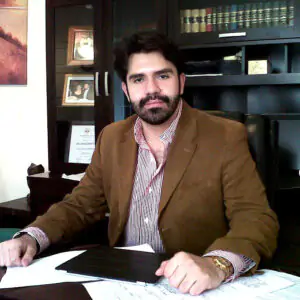Table of content
ToggleIn addition to all their knowledge and skills, doctors and health professionals in general must establish assertive, empathetic and efficient communication with their patients to prevent conflicts from arising, from disagreements to malpractice.
Today on the LEX & CO blog we will tell you how a trusting doctor-patient relationship contributes to reducing conflicts and improving health services.
Although medicine and medical administration have evolved thanks to the emergence of new technologies, a paradox has been created that distances health professionals from patients.
For example, there have been documented cases of patients with symptoms, in whom tests are performed or some basic treatment is recommended without having conducted a prior interview to investigate the causes of the condition.
On the other hand, the reduced consultation times granted in public institutions due to work overload has caused doctors to quickly attend to the patient, without conducting an in-depth interview to identify the causes of the condition and reach an accurate diagnosis.
Currently, information about medicine is available to everyone thanks to the Internet. Therefore, patients know more about their conditions, symptoms and rights.
Therefore, when a patient receives poor care, a misdiagnosis, or inappropriate prescriptions, it is easier for them to identify these situations and complain about malpractice.
On the other hand, a poor doctor-patient relationship has been shown to have consequences such as errors in diagnosis due to lack of information for the clinical history.
Health personnel must have communication strategies to improve medical services. In this way, they will be able to create an environment of trust with the patient, generating a solid relationship that allows improving results in terms of diagnosis and treatment.
Effective communication by the physician must include verbal, nonverbal, and paraverbal language. That is, body language, posture, diction, way of expressing oneself, eye contact, intonation, among other characteristics to create empathy with the patient and better transmit instructions.
In addition, doctors must listen to their patients better, analyze their posture, movements, intonation, physical characteristics, among other features to evaluate their conditions.
Through the medical consultation or interview, health professionals must collect information from the patient, form a relationship of trust so that they express all their symptoms and feelings and, finally, educate the patient about their condition.
Thousands of users of public or private health services indicate that they feel that doctors do not listen to them, that they are treated like the number of a bed, an illness or just another appointment of the day. Human treatment is key to achieving effective communication that allows us to fulfill the main objective of medical sciences: preventing, diagnosing and curing diseases.
If you or someone in your family was a victim of medical malpractice, reach out to us. At LEX & CO we are lawyers specialized in negligence cases and we will gladly advise you to obtain fair compensation for the damage.
Write to us through the contact form, tell us your case and: Learn the Art of Winning with LEX & CO!

Carlos Figueroa Rodríguez, attorney at law at Lex & Co. He has more than 10 years of experience in specialized cases involving medical malpractice and insurance claims. He is a graduate of the Universidad Anáhuac and has a Master’s Degree in Constitutional Law and Amparo from the National Bar Association. He also has a Doctorate in Juridical Sciences from the UCI Mexico. Professional license 6577215.
Calle California N° 130-A (Casi esquina Inglaterra) Col. Parque San Andrés, CDMX C.P. 04040
copyright 2025 Privacy Notice